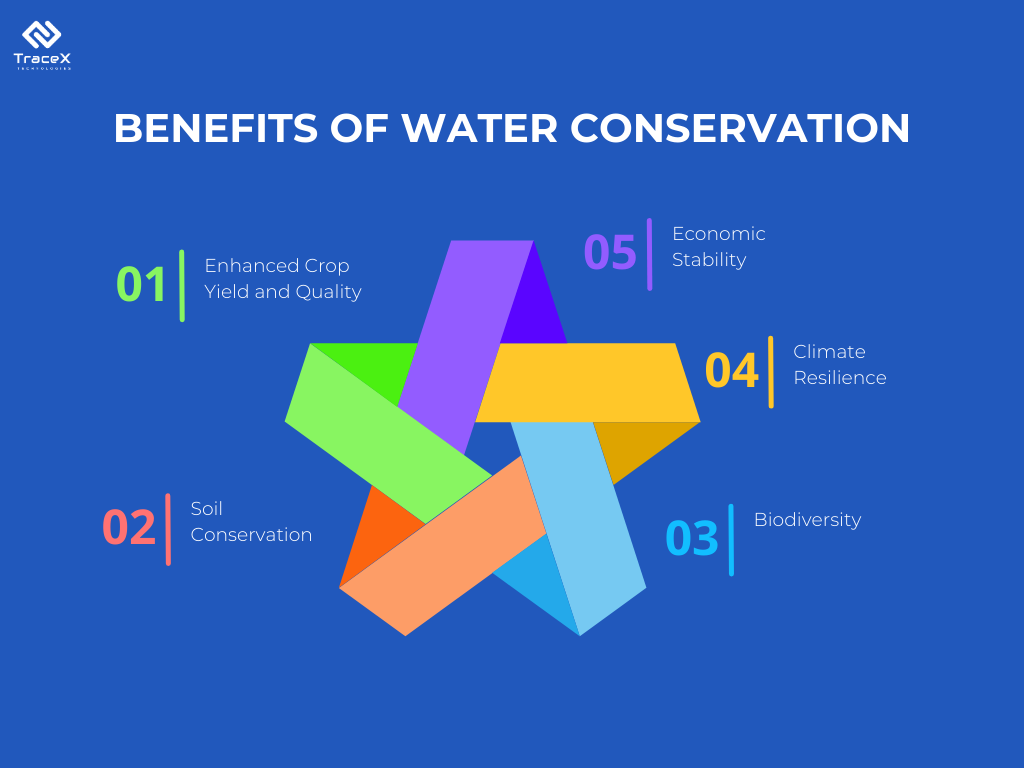Contact: +91 99725 24322 |
Menu
Menu
Quick summary: Discover how natural farming practices like mulching and rainwater harvesting can revolutionize water management in agriculture. Explore the benefits of water conservation for farmers and the environment.

Water scarcity looms large as a primary challenge for farmers worldwide. The increasing demand for food coupled with erratic rainfall patterns and depleting groundwater levels has put immense pressure on agricultural water resources. This crisis is further exacerbated by inefficient irrigation practices and a lack of comprehensive water management strategies. Water conservation in natural farming is crucial in modern agriculture,
Farmers are faced with the daunting task of balancing crop production with water conservation. The need for innovative solutions that can optimize water usage while ensuring food security has never been more urgent. Water conservation in natural farming emphasizes sustainable practices that not only enhance crop yield but also maintain soil health and reduce environmental impact. Natural farming methods are inherently designed to be eco-friendly, using resources judiciously and promoting biodiversity.
Water is a finite resource essential for agriculture, yet it is often overused or wasted in conventional farming. Natural farming techniques aim to optimize water use, ensuring that crops receive adequate moisture without depleting local water sources. This approach is particularly important in regions facing water scarcity or unpredictable rainfall patterns. Efficient water use in natural farming can lead to:
1. Sustainability: Reducing water consumption ensures that this vital resource remains available for future generations.
2. Cost Savings: Lower water usage can reduce costs for farmers, making their operations more economically sustainable.
3. Improved Soil Health: Proper water management prevents soil erosion and maintains soil structure, promoting better crop growth.
Natural farming is an agricultural approach that emphasizes sustainability, minimal external inputs, and harmony with nature. It contrasts sharply with conventional farming methods, which often rely on chemical fertilizers, pesticides, and heavy machinery. This method is gaining attention worldwide as a viable alternative for sustainable agriculture, aiming to restore soil health, increase biodiversity, and produce nutritious food.

Farmers looking to implement water conservation strategies should consider the following steps:
The traditional method of manual data collection for farmer water hour usage presents several challenges, including data accuracy, time-consuming processes, and limited scalability. Technology-driven solutions, such as mobile apps, offer a more efficient and reliable approach to data collection and aggregation.
By leveraging mobile apps for data collection, the process becomes more efficient, accurate, and scalable. This enables better decision-making for water management, irrigation planning, and the allocation of electricity subsidies. Additionally, mobile apps can facilitate better communication between farmers and data collectors, promoting transparency and trust.
TraceX’s sustainability platform offers a robust solution to the challenges of traditional farmer water hour data collection. By leveraging advanced technology, TraceX empowers stakeholders with accurate, real-time, and actionable insights.
Key benefits of using TraceX:
By adopting TraceX, stakeholders can significantly enhance data accuracy, efficiency, and utilization in water management and irrigation planning.
EXPLORE OUR SUSTAINABILITY PLATFORM
The ZBNF Approach: Subhash Palekar’s Zero Budget Natural Farming (ZBNF) in India emphasizes techniques like mulching and rainwater harvesting, significantly reducing water usage and improving soil health.
SRI Method in Rice Cultivation: The System of Rice Intensification (SRI) method involves planting fewer seedlings and using less water, leading to increased yields and water savings.
Agroecology in Latin America: Farmers in Latin America have adopted agroecological practices such as contour farming and agroforestry, resulting in sustainable water use and improved crop resilience.
Andhra Pradesh Community Managed Natural Farming (APCNF) program was initiated to address pressing agricultural challenges including declining soil health, water scarcity, and rising input costs. By shifting focus from chemical-intensive farming to natural, regenerative practices, the government aimed to enhance farmers’ livelihoods, improve food quality, and mitigate climate change impacts.
Water conservation in natural farming is not just an environmental necessity but also a pathway to sustainable and resilient agricultural practices. By adopting techniques such as mulching, rainwater harvesting, and drip irrigation, farmers can optimize water use, improve crop yields, and contribute to the long-term health of their ecosystems. As global water resources become increasingly strained, the importance of sustainable water management in agriculture cannot be overstated. Embracing these practices will ensure that farming remains viable and productive for future generations, fostering a harmonious relationship between agriculture and the natural world.
